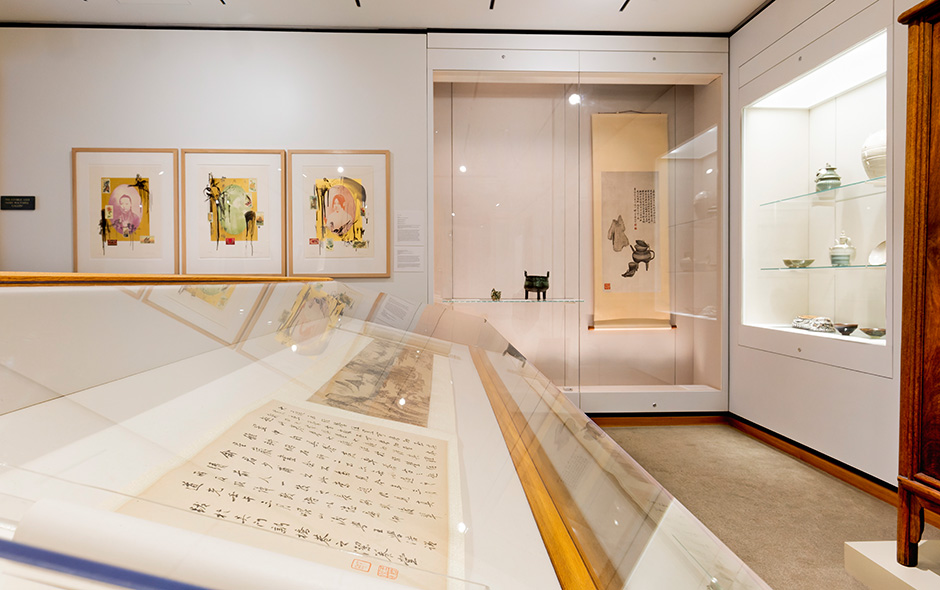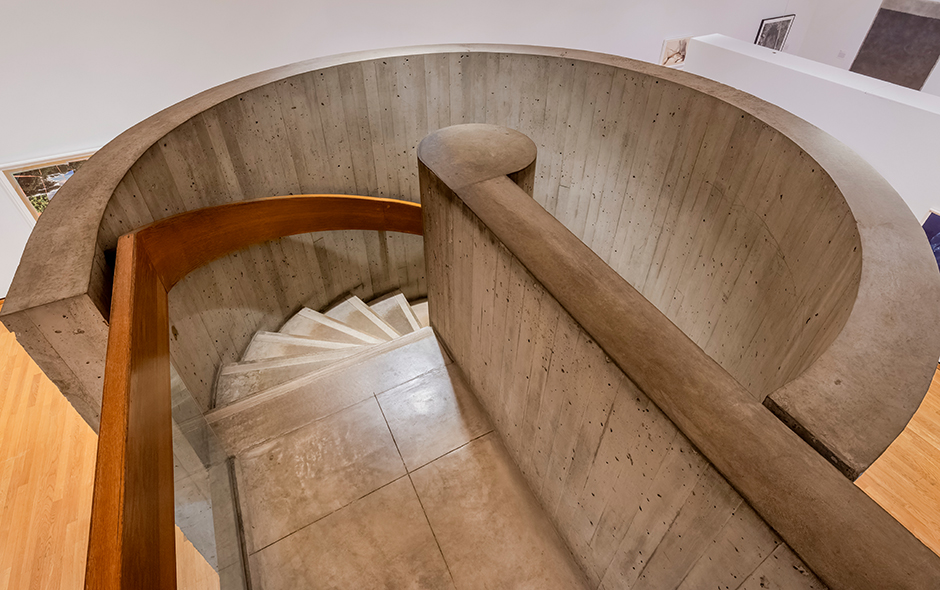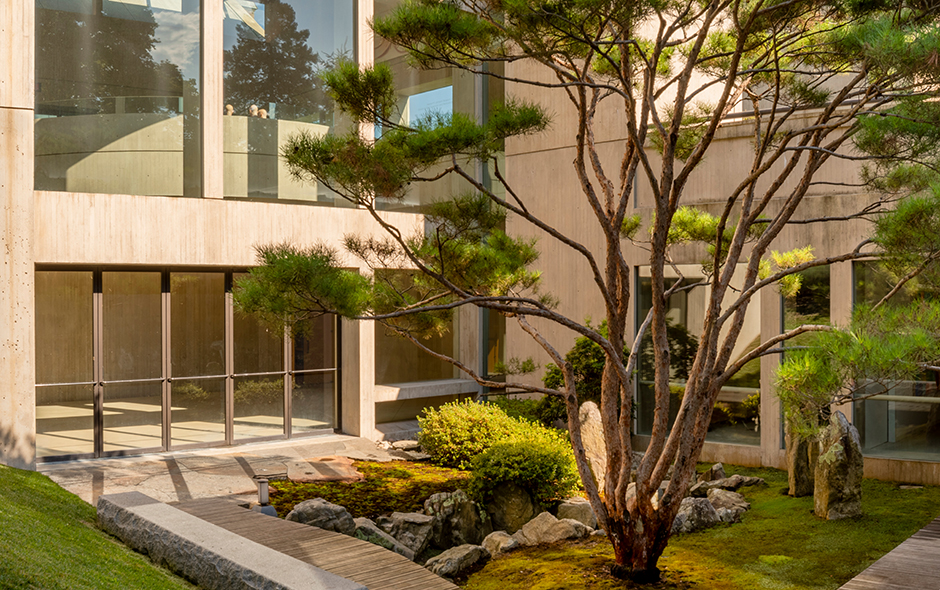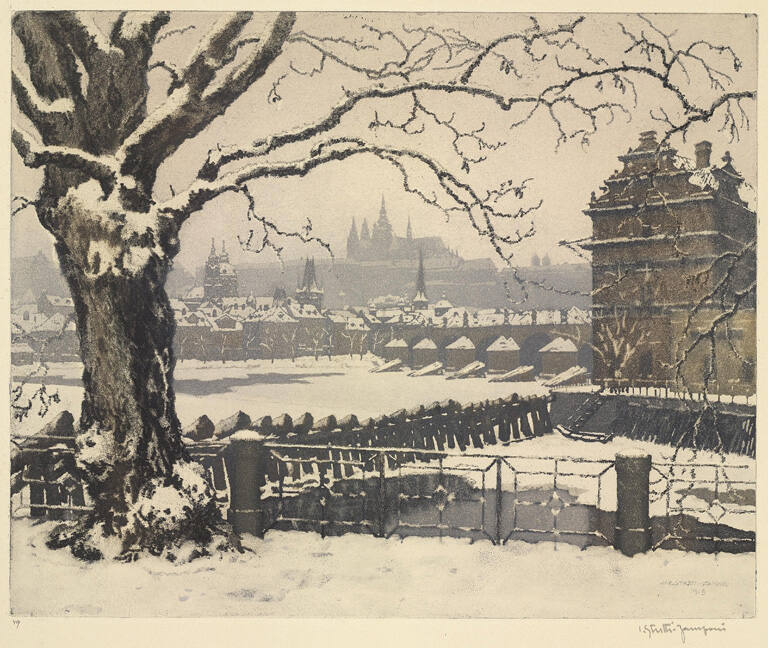Gu Wenda
(Chinese, born 1955)
Poem by Wang Wei, no. 34 from the Forest of Stone Steles: Retranslation and Rewriting of Tang Poetry
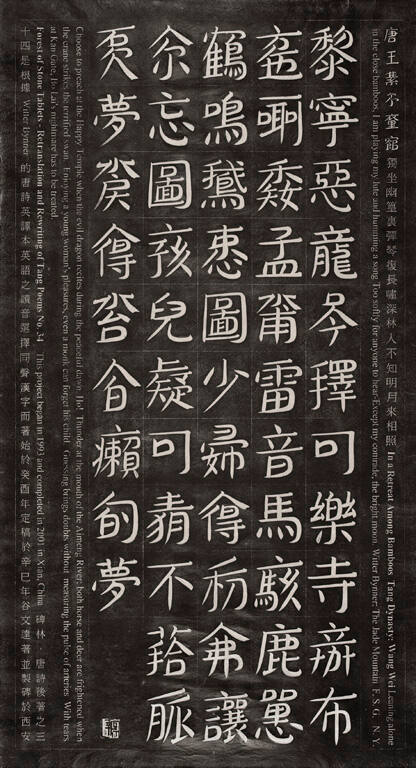
Object Details
Artist
Gu Wenda
Date
1993-2005
Medium
Ink rubbing
Dimensions
71 × 38 inches (180.3 × 96.5 cm)
Credit Line
Acquired through the George and Mary Rockwell Fund
Object
Number
2008.030
This is a rubbing of one of the fifty steles from Gu Wenda’s Forest of Stone Steles series. Carved(…)
This is a rubbing of one of the fifty steles from Gu Wenda’s Forest of Stone Steles series. Carved on the stele is the artist’s retranslation of a famous Tang-dynasty poem by Wang Wei (699–759). On the right edge, Gu included the original poem, and the English translation by Witter Bynner. In the central text, Gu re-created characters by translating the poem phonetically from Bynner’s English translation to Chinese, and then rewriting the characters by changing around the parts within each character. He then translated the re-created Chinese text back into English, fabricating a nonsensical poem, which is carved on the left edge.Gu’s steles are meant to provoke discussion on translation among cultures, and how misunderstanding is part of a process of creation. Historically, writings on steles exert authority through their monumentality and scale. By re-creating something confusing and satirical on a medium that traditionally represented official voice, Gu questions and subverts the authority embedded in monuments.Ink rubbing is done by placing paper on top of a carved stele, or a memorial slab of stone, and then dabbing ink against the paper to capture an image of the calligraphy. Ink rubbing was a traditional way to document, circulate, preserve, and collect famous calligraphies. The sharp contrast between black and white displays the movement and crispness of the calligrapher’s hand. Transcription of the text in Gu Wenda’s Poem by Wang Wei, no. 34唐 王維竹裡館獨坐幽篁裏,彈琴復長嘯。深林人不知,明月來相照。Tang Dynasty: Wang Wei.In a Retreat Among BamboosLearning alone in the close bamboos,I am playing my lute and humming a songToo softly for anyone to hearExcept my comrade, the bright moon.—Translated by Witter BynnerPhonetic transcription of Bynner’s translation of the poem before parts of the characters are changed:黎寧惡龍吟,擇可樂寺辦布施。啊!矮孟浦雷音,馬駭鹿憚,鶴鳴鵝悚。圖少婦得利,佛讓你忘圖孩兒。疑可猜,不搭脈。砍門淚,得治伯癩的夢。Retranslation into English:Choose to preach at the Happy Temple ,when the evil dragon recites during the peaceful dawn.Ho! Thunder at the mouth of the Aimeng River;both horse and deer are frightenedwhen the crane strikes the terrified swan.Enjoying a young woman’s pleasures,even a monk can forget his child.Guessing brings doubts without measuring the pulse of arteries.With tears at Kan Gate, Bo Lai’s nightmare has to be treated.




